- Home
- Bryce Courtenay
Tommo and Hawk Page 2
Tommo and Hawk Read online
Page 2
‘Touch more gravy, God?’
‘Don’t mind if I do, Tommo, m’dear.’
God polite as you like while I pours Him more gravy, little onions tumbling out of the jug. God ever so grateful to be out of the devil’s breath weather what comes roaring and snorting down the mountain.
I’d lie there in the forest hut wrapped in me wet blanket, coughing and shivering, dreaming of Mary’s Sunday kitchen. ‘I’ll come back, Mama,’ I’d cry, teeth chattering fit to break. ‘You just watch and see, little Tommo’ll be back sure enough soon as I can find me way to Port Davey and stow away aboard a timber ketch.’
But now since I come back, me appetite’s quite gone. Nothin’ tastes good no more. Sundays were always me best days in them old days. Now they’s bloody purgatory with me afraid to look into Mary’s sad face. Me here drinking Brodie’s sly grog, scared shitless because Hawk’s gunna make me sit down to Sunday dinner with our own mama. How can I face Mary when I’ve forgot how to deal with kindness in me life? Hawk with his hands moving thirteen to the dozen, trying to make cheerful conversation, and me with me eyes on me plate, not wanting none of it ‘cept to get up and run for me life.
Though Hawk can’t talk no more with his voice, I can still hear him in my head. When he speaks with his hands I can hear him clear as a bell. All them years away and I never lost the sound of him. I promised meself when I were miserable that I were going back to my mama’s Sunday dinner and to my brother’s deep, sweet voice. Now it’s gone. His voice what was always a comfort to me when I was away, always steady, unafraid, Hawk’s beautiful blackie boomer voice is gone, rubbed away by the wild man’s horse rope. Even then, in the wilderness, I had most strange feelings like something were trying to choke out Hawk’s voice, but I tried to put it out of me head, for remembering was all I could hang onto.
Mary’s told me what happened to Hawk when we was both kidnapped on the mountain and later became separated. A wild man took Hawk and starved him and led him behind his horse by a hide rope around his neck until his voice was rasped away. All he’s got now is his necklace of scars. I’ve asked Hawk about this time, but he says with his hand language he can’t remember anything except that we was took on the mountain by four men and afterwards nothing. I can’t remember the early part either. I can remember how it were with Sam Slit, but I don’t want to talk about it. Maybe one day we will.
I suppose I should count meself the luckiest cove in the world that I were spared the terrible thing done to make Hawk lose his voice. But I don’t think meself lucky. Poor dumb Hawk, he’s the lucky one. He didn’t stay away long enough from Mary to learn to be afraid. Fear never took him and introduced him to the mongrels. He can still feel things. I’ve seen the tears brimming when he tries to ask what happened to me in the wilderness, his confusion when I shakes my head because I can’t say for the bitterness inside of me.
I can see my brother’s concern for me. But I don’t feel it. Can’t feel the love I know Hawk has for me. I could do before I was took. I could feel everything he were feeling, like we were two fingers on the same hand. Shit, now I don’t feel nothing no more. Not for Hawk, not for Mary, not for meself. That’s what the wilderness done to yours truly. It took all the feeling out of old Tommo and left only the fear of the mongrels what’s always lurking in the tall timbers waiting to get you.
I calls for another shot. Brodie brings it, but before I can pretend to search for a sixpence I know I ain’t got, a drunk on the floor begins to shout and jerk, taking a fit. Brodie curses and forgets to ask for me money. He goes over and kicks the poor sod in the head. Brodie knows his stuff— when a man’s took to fitting, a kick in the head sometimes’ll bring him to calm again. I suppose it be the shock. I can feel Hawk is close. Better drink up quick, Tommo.
Hawk says we got a purpose, him and me. Me, quick and nimble with a mouth full o’ cheek. Him, strong and thoughtful and silent. It’s a right rare combination what could work together, he says. Mary says we are her team to build up the brewery she started soon as she was freed. It’s up to us now to gain folks’ respect, be someone what our kind has never been before, what them merinos think the likes of us can never be.
‘It’s the world’s best opportunity for the taking,’ Hawk says. ‘We’d soon be proper toffs, and your children, Tommo, they’d be true merinos!’
But old Tommo here knows that’s crap. There’s no purpose, no opportunity for the likes of me. You can’t make nothing good out of nothing.
Take a look at me, will ya? Mary’s little lamb is become a drunk, a useless scum what wakes up and needs a drink. Somebody what can’t think of nothing but a bottle to leach the anger and the hate out of his rotting guts. What’s I gunna do? Wear a clean collar and learn clerking? Sit in a high chair with a green eyeshade, sharpened quill and blacking, working at profit and loss? Mary’s precious little bookkeeper, Tommo X Solomon, beer baron in the making? Load o’ rubbish, if you ask me!
I ain’t clever but me hands, now, they’s a different story. Dog-baiting and fist-fighting and timber-getting and burns from Sam Slit’s whisky still, that’s what’s made ’em look bad. Every finger and knuckle looks broke or dog-bitten, and what’s skin for other folk is scars for me, scar-tissue what can take most kinds of pain. They don’t look much chop but they be good hands, even if I do say so meself.
That’s the difference, see, they ain’t like Mary’s hands what are black and twisted and broken and I think most painful of movement. That’s me one big secret, hands what looks battered but are sly as a fox.
Other broadsmen see me holding cards at cribbage or the Yankee game of poker what’s catching on among the troopers and gold miners, and they thinks: ‘Here’s a go, little bugger can’t do nothin’ nasty with the flats using them poor sodding little mitts.’ Ha!
What they sees is timber getters’ hands, bashed in the sawpit, calloused on the axe handle, cut, broken, burnt. Hands what ain’t capable of handling a deck or palming a card in broad daylight so that the most suspicious sharper can’t see what’s going on right in front of his very own eyes. No danger in them pathetic, scarred and sorrowful little paws. No sir, not them!
But that’s where they be wrong! That’s their biggest mistake! What Ikey taught us at cards, me hands took to natural, like they had a mind of their own.
Ikey himself were most complimentary about this. ‘Most elegant and nimble, full o’ guilefulness and most diabolical of purpose, flippers tailor-made by the devil himself to belong to a broadsman o’ most superior talent. Congratulations, my dear.’
Ikey were right, me hands has a pure and natural ability for winning at cards by means of cheating. They’s good enough kept on the straight, mind— they hold their own and more in any honest game, if such an event be possible. But they is most amazing on the cross. Sometimes they do things with a deck o’ flats what can even astonish me. Never’s the day they don’t earn me grog enough to dampen down what’s ugly and frightening and burnin’ inside me. There’s always some mouth who fancies himself at cards and who’s got a silver sixpence to lose in a hurry. Or a trooper with the Queen’s florin he wants to double or treble and who grows most confident when he watches Tommo’s clumsy little hands busy at spreading the cards around the table.
That be me only asset, hands what are up to no good, good only for cheating at cards, fist-fighting, dog-baiting and being most fast and nimble when they are clasped around the handle of a small lopping axe, like the one I always carries on me belt in case of mongrels.
Them’s me total credentials, me hands. Hawk says he’ll learn me reading again, the trick of which I’ve long since forgotten. But I’m not so sure I can pick it up again. ‘Look,’ he says, ‘you learned Ikey’s hand language soon enough again. Reading is the same, you’ll soon be schooled back to it again.’ But reading be a thing of the head, and Ikey and Hawk’s hand language be a thing of the hands. That’s the big difference, me head’s fucked but me hands ain’t.
Nastiness is the only t
hing what I’m well schooled in now. Mary’s nicely brought up little lad, Tommo, what even at seven years old had some book learning and writing, is now everything what’s deemed bad. But Mary and Hawk expects that with a bit of plumping up, kindness and affection, what I am become will go away again. That the niceness is still inside me, only for a moment drowned out by me wilderness life, that with a bit of gentleness and love and a few gravy-soaked Sunday dinners under my belt, it’ll all bob back to the surface, like a cormorant what’s been fishing. And there I’ll be, good as new, floating merrily down the river of happiness and contentment.
How the hell, I begs to know, does I do that? For seven sodding years I had the living daylights kicked out o’ me by mongrels the like o’ Sam bloody Slit! Now I’m supposed to pretend all is forgiven and the world ain’t no longer a bad place. Can’t them two see that ain’t possible? That what’s inside me is all screwed up for good?
A large hand come down on the back of me neck and squeezes. Not so it hurts but firm enough. Crikey, it be Hawk! I didn’t see or feel him come in, so lost am I in me own stupid misery.
I grabs at the tot in front of me and tries to knock it back, but me head won’t go back because Hawk’s holding me neck and I spills most o’ the precious liquid onto me blouse. ‘Damn!’ I twists away angry and looks up. Sure enough, Hawk’s got his finger and thumb pinching at his nose, lamplight shining on his fingernails. I can’t help but smile.
Hawk lifts me from the bench by me scrawny neck. He don’t do it rough but he don’t intend to have no protest from me neither. I could still twist and kick him in the bollocks, double him up, then head-butt him as he’s coming down— I’ll take on any cove what’s up to a foot higher than me and bigger yet if I be drunk. Besides, I got me axe. But I don’t, of course. I don’t fight Hawk, who’s like a band of iron around me neck. It ain’t him what’s making me angry, so I lets him steer me towards the door.
Brodie shouts I owe him sixpence.
Hawk lets go my neck, digs in his coat and flips him a shilling. Then he touches me lightly on the shoulder, directing me once more to the doorway. Brodie claps his mittened hands together but misses the spinning coin and curses as it clatters to the floor and two wretches, growling like a pair o’ pit bitches, come alive and scramble for it at his feet, tits falling out. Brodie jumps aside dancing a jig, then kicks out wildly at the two soaks, screeching like a demented cocky-parrot.
Outside the sunlight be so bright I’m blinded and Hawk waits while I hold my hands up against my eyes and rubs. He can’t say nothing to me ‘til I can see proper, ‘til me eyes adjust to the sunlight. So he stands and rests his big hand soft on my shoulder.
We stand outside with all the tiny lights flickering in front of my eyes, little stars and explosions floating in blackness. Hawk’s hand on my shoulder feels safe. It feels good. Jesus! He’s coming back to me, coming back into me heart! But then I thinks, maybe it’s only Brodie’s crook grog what’s pumping through my veins giving me a drunk’s false hope. So I rolls me shoulder and shrugs off his hand. No point him imagining what ain’t true.
I can see clearly again and I note it’s well past noon by the position of the sun. Hawk is standing waiting. Now he has his arms folded and clasped to his chest, looking down at his boots. His dark shadow cast in the dust is nearly twice the size of my own.
‘Mary, is it?’ I sneer. ‘Commanding yours truly to Sunday bloody dinner?’
Hawk looks down sideways at me, his eyes narrowed, then he shakes his head slowly and spits to the side of his boots. ‘Come,’ he signals to me, ‘our ship is leaving on the afternoon tide.’
Chapter Two
HAWK
Hobart Town
July 1856
Tommo’s come back to us bad. The wild men have made him bad, taken his niceness and smashed it. His blue eyes are hard, the laughter in them gone.
‘Tommo’s come back to us damaged, Mama,’ I say to Mary with my hands, the language I now use between us. ‘He’s lost himself somewhere.’
‘Hush, you hear!’ Mary says. She doesn’t like what I’m saying. She looks at me accusingly. ‘You’re still good despite what you’ve suffered, so why not him?’
I shrug. ‘It’s not the same. I’m a nigger, niggers aren’t supposed to have feelings.’
She leans forward across the table. ‘Nonsense. Now you listen to me, Hawk, he’ll come good. All he needs is a lot of loving.’ She purses her lips. ‘I’m not much good at mothering no more, a bit old for all that malarky, but now he’s back, he’ll get lots of good food and proper care. Least I can do!’
‘Yes,’ I say, trying to look more hopeful than I feel. ‘He’ll get that and more. I hope you’re right, Mama. The wilderness took a lot from our Tommo.’
‘Not more than it took from you!’ Sudden tears well up in her eyes and Mary points to my neck, to the rope burns, the permanent scars that ring it in a band of silver tissue an inch wide against my black skin. ‘The wild man took your voice.’ Her lips are pulled thin as she wipes her mouth with the back of her hand. ‘Nothing could be as bad as that, now could it?’
She has never said anything about my voice before. Never spoken about it since it happened, since the day she found me in the mountains. Now I can see that it’s more than she wanted to say, that she thinks it’s come out wrong. So she thinks a moment, then smiles, brushing away the tears, trying to brush away the horror she’s felt all these years at what was done to me.
‘It were such a nice voice, Hawk. You was just a little un but your voice were already deep.’ She smiles at me. ‘Did you know that, son?’
I nod and she continues. ‘Lovely it were, like a melody. Folk would listen when you talked, even when you were a sprat. The wild man took that, there’s no making up for that.’ She shrugs, eyebrows high, mouth twisted. ‘You’ve come good. Tommo’s got no lasting damage, a little to his hands but not like what happened to you, not like that.’
‘It’s inside, Mama.’ I think about how Tommo’s afraid. ‘That’s where he’s broken, something’s broken inside him.’
Mary looks strangely at me. She doesn’t tolerate folks who feel sorry for themselves. When she speaks her voice is sharp again. ‘Whatever it were what happened to Tommo, it were no worse than most of us gets in life. This poxy island be full of past suffering. Sadness be a part o’ this place. Suffering beyond the wildest imaginings of them what’s not like us. Tommo’s still young, only just growed up, plenty o’ time for him to settle down. Work will fix what ails him.’
She says all this quickly as if she has thought it all out. Mary mostly keeps things to herself. Thinks them out, then keeps them, holds them tight to use only when needed. Now I sense she’s worried about my brother too. When you’ve lost your speech and must talk in hand language you learn to watch people more carefully. Ikey always said, ‘Listen with your eyes, Hawk, it be your eyes what’s your best ears,’ and he was right.
I don’t want to say it but I must. ‘Mama, I don’t think Tommo will want to work in the brewery.’
Mary draws back sharply. ‘What’s you saying? What’s you talkin’ about?’
It is late Sunday morning with a high blue sky over the mountain and the winter’s sun polishes the river like mirror glass. Mary’s kitchen is bathed in sunlight. The window panes reflect bright squares that burn out the colour where they make a pattern on the dark brick floor. Specks of dust, turned to gold, dance in the shafts of light.
Tommo has gone down to Wapping to drink at Brodie’s sly grog shop. Since he’s been back he does a lot of walking on his own, learning Hobart Town that’s grown and changed so much since we were kidnapped. He walks then stops off to play euchre or poker in a pub or grog shop, coming home late and drunk. Sad drunk. A fifteen-year-old who finds no cheer in the drinking he does.
Mary and I are sitting at the kitchen table, which is covered with a white cloth. On Sunday, Mary always spreads a white cloth on the kitchen table. Damask, she calls it. It’s like her Su
nday altar. We don’t go to church. Mary doesn’t believe in it and Ikey, the closest thing we had to a father, was a Jew. So was our real mother, or so he said. He used to tell Tommo and me that we were too.
Mary says she doesn’t know anything about that. All she knows is our mother was Sperm Whale Sally, a whaleman’s whore. She says Ikey made up a lot of things to suit, like the X he put in both our names. Ikey added it on the spur of the moment when the government man said it wasn’t Christian to have only one name and demanded a second be given. So Ikey scratches his noggin and thinks a moment then says, ‘Israel and Moses,’ and the man says they aren’t Christian either and he isn’t going to write anything down until Ikey comes up with good Christian names for seconds.
‘Tell you what,’ says Ikey, ‘I’ll put X and then they can both choose a second name to their own liking when they’ve grown a bit.’
The government clerk thinks for a moment, scratching his head. ‘Fair enough, all right then, X it be.’ He can’t immediately think of a reason why X is not Christian, it being a sort of cross and all, and he doesn’t really care. So now it’s Hawk X Solomon and Tommo X Solomon forever after.
‘Can’t trust the silly old bugger to get nothing right!’ Mary said when she first told us she wasn’t our real mother, nor Ikey our father, even though he gave us his name with the X added.

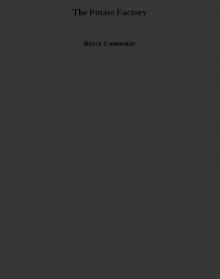 The Potato Factory
The Potato Factory The Power of One
The Power of One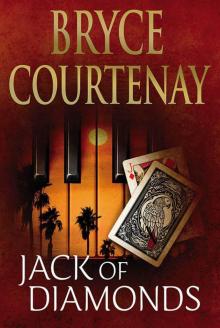 Jack of Diamonds
Jack of Diamonds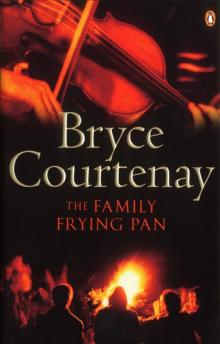 The Family Frying Pan
The Family Frying Pan April Fool's Day
April Fool's Day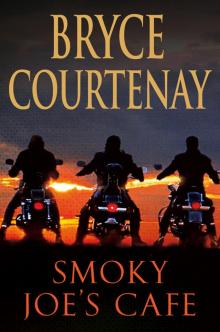 Smoky Joe's Cafe
Smoky Joe's Cafe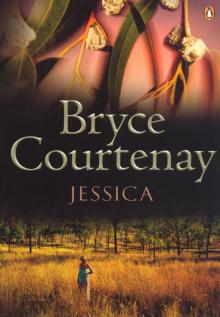 Jessica
Jessica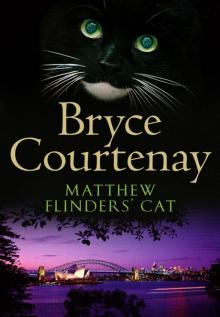 Matthew Flinders' Cat
Matthew Flinders' Cat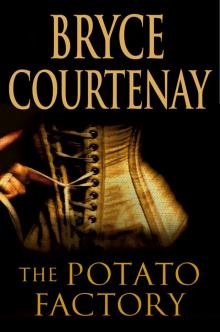 Potato Factory
Potato Factory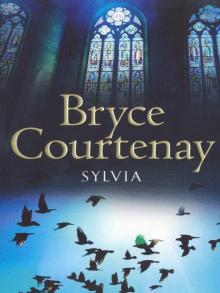 Sylvia
Sylvia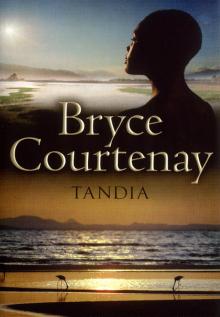 Tandia
Tandia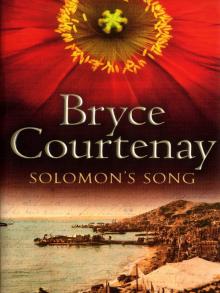 Solomon's Song
Solomon's Song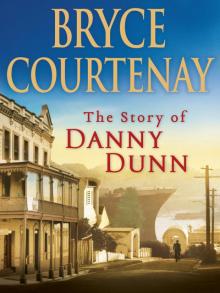 The Story of Danny Dunn
The Story of Danny Dunn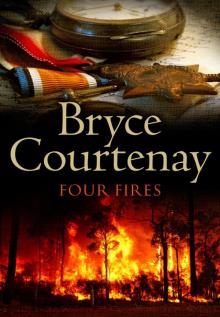 Four Fires
Four Fires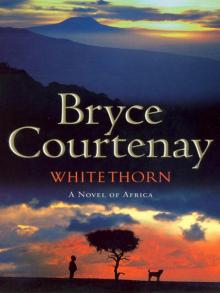 Whitethorn
Whitethorn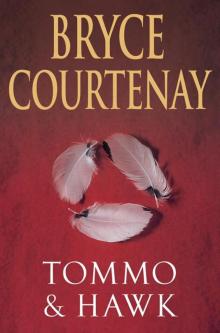 Tommo and Hawk
Tommo and Hawk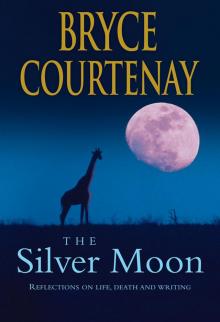 The Silver Moon
The Silver Moon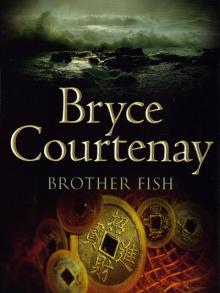 Brother Fish
Brother Fish FORTUNE COOKIE
FORTUNE COOKIE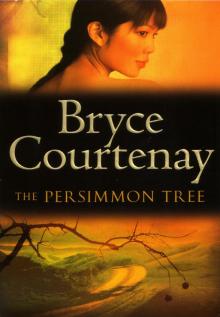 The Persimmon Tree
The Persimmon Tree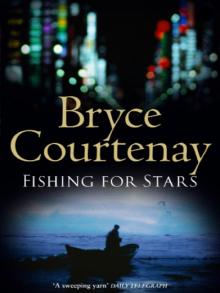 Fishing for Stars
Fishing for Stars